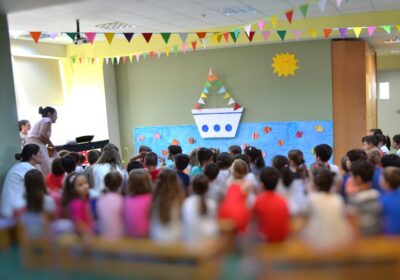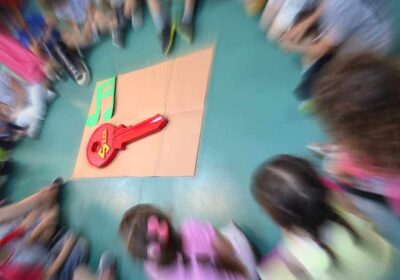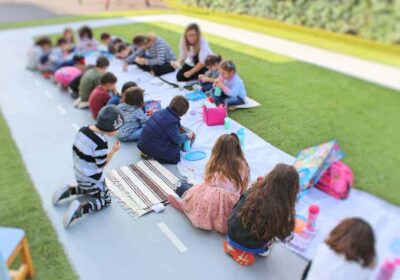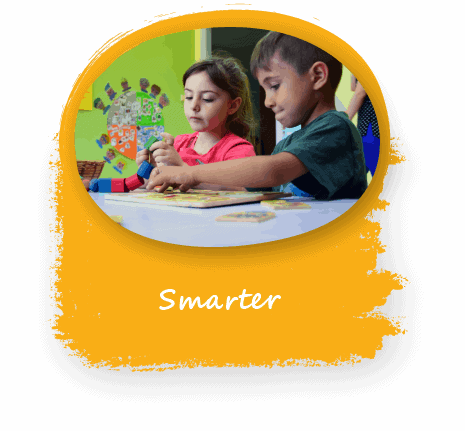
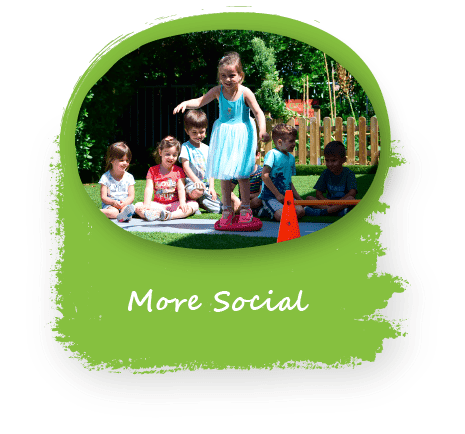
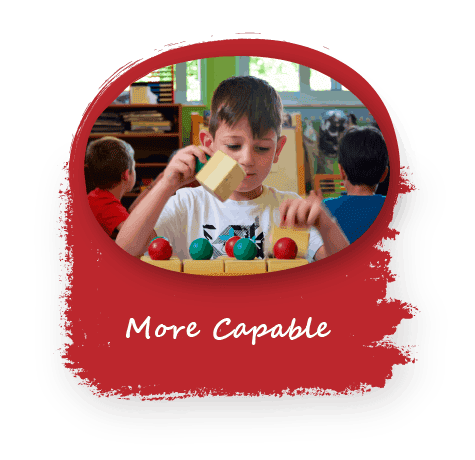
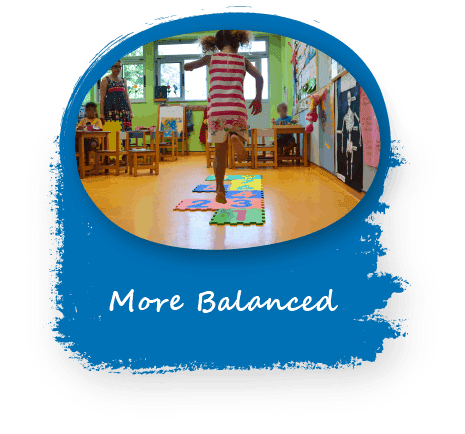
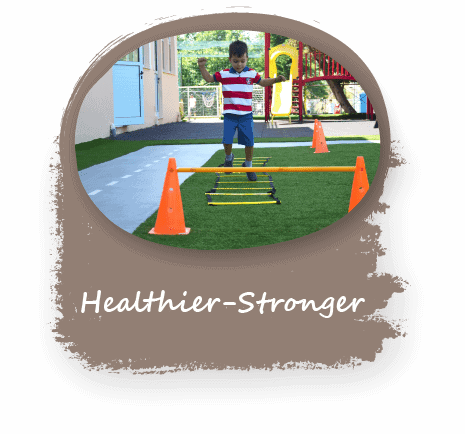
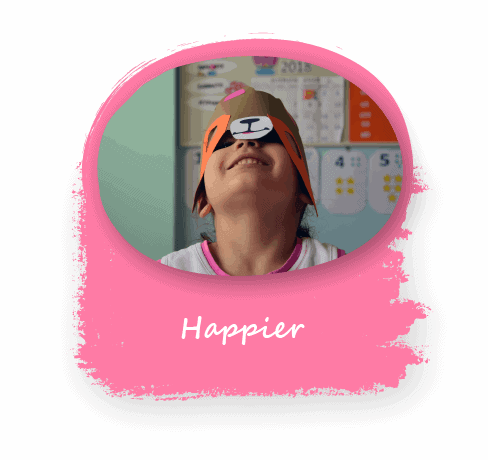
Philosophy - Objectives
According to scientific research, the ages between 0 – 7 are crucial for an individual’s cognitive development. The mental, emotional, social and physical developments taking place at this stage, are fundamental for the rest of a person’s life. The opportunity to have a lasting positive impact on the child is unique as this age coincides with the child’s attendance of the pre-nursery and kindergarten.
Therefore, the choice of kindergarten for a child is a decision that parents should not take lightly and not without considering a variety of parameters and criteria. It is recommended not to view pre-school education as mere child-care facility, but rather as the cornerstone upon which children’s mental capabilities, academic development, emotional balance and character are founded.
At Ekpedeftiki Anagennisi, we responsibly undertake the hard work of harnessing each child’s skills at this stage in order to fully activate her/his potential.
With every nursery activity we aim at
- Integrating the child smoothly into the first organised social group s/he comes across after his/her family
- Developing the child cognitively, linguistically, socially and emotionally
- Involving all children in teamwork activities
- Introducing them into the world of learning through experiential learning
- Cultivating imagination and creativity as well as developing various skills
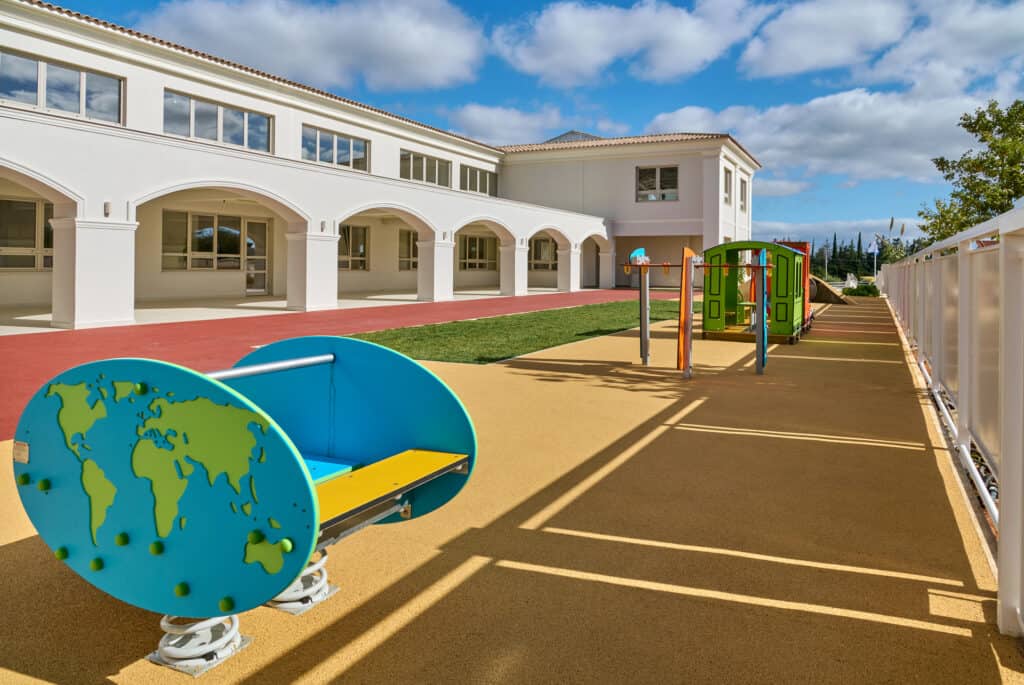
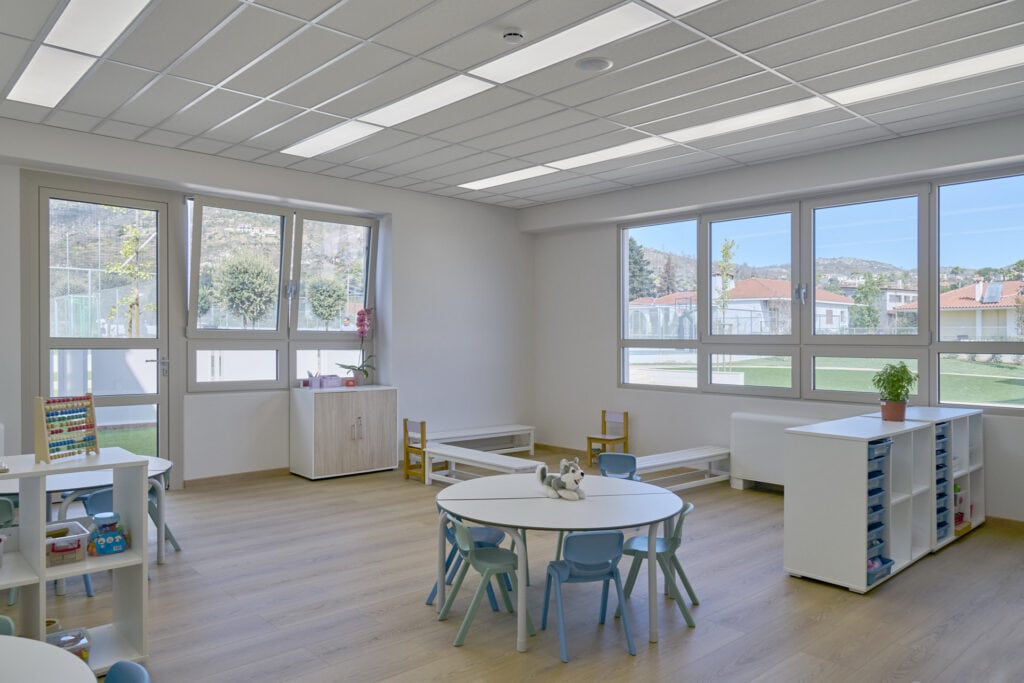
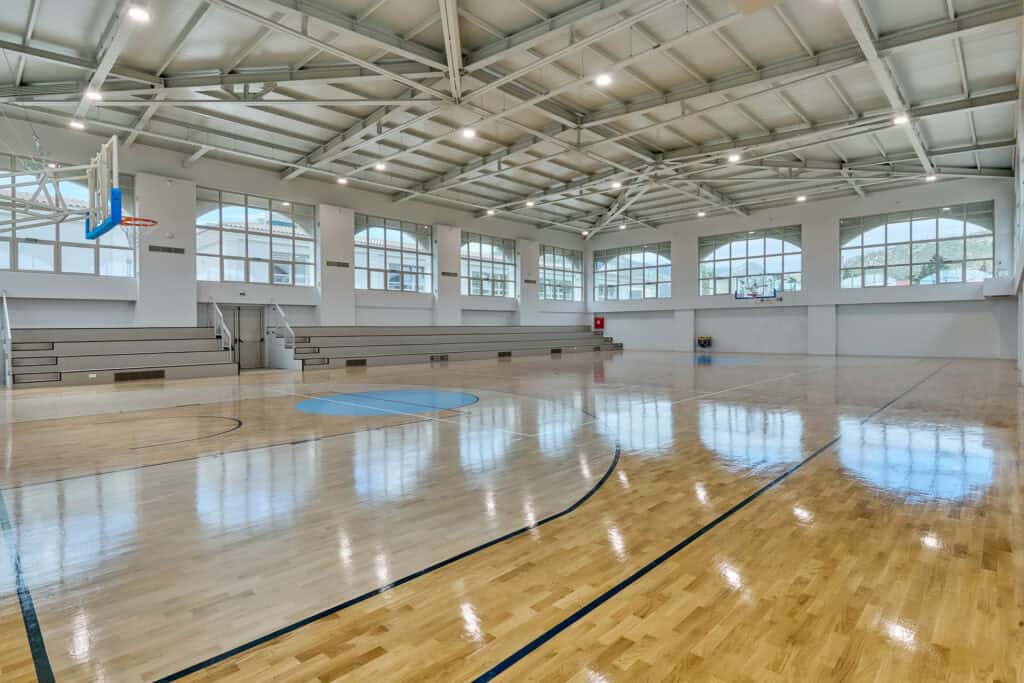
Our Curriculum
Child and Language

By capitalising on previous knowledge and through the identification of phrasal errors children are prone to at this age, we intervene pedagogically and support them in fully developing their communication and language skills.
The child develops speaking and listening skills
- S/he Narrate daily experiences while adhering to the consecutive order of events and using adverbs of time and frequency
- Describes objects or events to the team
- Explains and argues about his/her views, choices and preferences
- Learn how to listen to her/his interlocutors without interrupting them, even if s/he disagrees
- Practice in using appropriate expressions in cases that require specific language
- Acquire phonetic knowledge of the language through distinguishing phonemes as parts that make up words
- Exercise memory through memorising parts, poems, riddles and tongue twisters.
The child develops reading skills in order to
- Adopt basic reading principles, such as reading a book from the beginning to the end, from left to right, appropriate voice colouring according to content, etc.
- Listen to and comprehend texts, intervening and making assumptions and comments on how the story will develop or end
- Combine information from various sources in which pictures and written discourse co-exist
- Borrow books from the school library which correspond to his/her interests and s/he learns how to identify the title, the writer, the illustrator, the publishing house, etc.
- Realise that the phonemes of the spoken language have corresponding letters, which s/he starts recognising little by little and is able to read certain words that reoccur
The child develops writing skills in order to:
- Learn how to write his/her name in capital and lowercase letters
- Create and form collectively, texts that are dictated to the Pre-school Teacher
- Learn how to hold a pencil in an effective way with the right posture
- Copy words that serve functional needs and correspond to the child’s interests
Introducing Mathematics in Kindergarten

Developing our young students’ mathematical thinking is structured through interaction with the natural as well as the social environment. Using experiential learning methods, children acquire mathematical thinking and develop logical skills through individual and collective problem solving.
The child acquires and develops pre-mathematical skills in order to:
- Recognise numbers and their meaning and learns the numerical sequence through games and number songs
- Comprehend the meaning of geometrical shapes, by recognising them around their surroundings and realises their basic properties (e.g. cubes can stand on each other, while balls cannot)
- Experiment with countable (e.g. beads) and no-countable (e.g. water) measurement units
- Execute simple mathematical calculations, comparing and dividing quantities
- Understand the way of measuring through the direct comparison of objects according to one of their characteristics, as well as measuring their height and weight
- Familiarise him/herself with the sense of time and its measuring by clock and hourglass
- Realise that certain problems have more than one solution an can be approached in many different ways..
Personal Development

The child evolves and develops his/her personality
- Acquire self-esteem through undertaking roles and initiatives
- Realise her/his uniqueness through conversations and comparisons of interests, preferences and/or weaknesses and strengths
- Identify and learn to respect similarities and differences with other students
- Experiment without fearing mistakes, since these are used as a starting point for the child to trust its capabilities
- Learn how to do things independently
- Adhere to hygiene and nutrition rules
Social Development

The child develops and advances social skills
- Makes friends through get-to-know games in the beginning of the year, group games, board games, free game time, etc.
- Develops the ability to cooperate in team projects, games and daily routines, such as abiding to rules, cooperating to use different materials in the classroom, wait for his/her turn, etc.
- Understands the value of teamwork through achieving a goal collectively in a group project
- Learns to accept losing at a game
Development of Concentration

At a time when a barrage of information facing the student often has a distractive effect in the ability of a child to concentrate, at our Kindergarten we manage to help children to gradually increase their ability to do so. We aim to increase their attention span through specific processes and graded activities. This is an important steppingstone for their future course in education along with every aspect of their adult life.
Cultivation of ethical values and social principles

The pre-Kindergarten and Kindergarten programmes cover specific knowledge areas aiming at
- Cultivating ethical values and social principles, so that the child understands the value of behaving properly in a team, with respect, responsibility, dignity, trust, honesty, solidarity
- Helping the child understand the need of adhering to limits that enable smooth teamwork, in order to obey rules while demonstrating self-discipline.
- Training the child to manage her/his positive and negative emotions and be able to maintain balance in her/his daily life
Interaction with Nature

Observation and exploration are the two main tools through which our younger students familiarise themselves with nature and perceive the world. The children get to know themselves and their place in the environment and are trained to take care of it and respect it.
Through our Kindergarten programme children
- Widen their knowledge on plant and animal species, as well as their categorisation through educational visits and by utilising the appropriate educational materials, the school garden, cultivating their own plants, etc.
- Realise season succession and people’s activities connected to them (grape harvest in autumn, wheat harvest in summer)
- Observe and recognise weather changes, meteorological phenomena and the consequences they have on the environment
- Discover the elements that make up the natural environment
- Realise the negative consequences human activity has on the environment
- Participate in environmental initiatives, such as recycling and composting
Man-made Environment

In Ekpedeftiki Anagennisi’s Kindergarten the child realises his/her individuality within the wider context of the human environment. The child:
- Re-enacts customs and activities related to folklore and religious traditions (carols, egg-painting, making Christmas and Easter sweets)
- Is introduced to Greek mythology, the Cycladic civilisation, etc. in an experiential way
- Learns how to ‘read’ the map of Greece and the world map and acquaints her/himself with the geophysical characteristics and the special features of every place (eg. Products produced in each area)
- Is encouraged to explore his/her immediate environment (house, neighbourhood, village, city, etc.) and the elements comprising it
- Learns how a house is built (stages, materials, professions needed, etc.)
- Acquaints itself with the main road signs and the importance of adhering to the rules of road behaviour and safety
- Learns about the main conventional and renewable energy sources
- Gets a first look into the different professions through the getting in touch with professionals accomplished in their field
Arts and Creative expression

Kindergarten students are motivated to express themselves creatively through the attendance of art classes. This process has an educational as well as a developmental role, given the fact that it contributes to the balanced and healthy development of pre-school children while it cultivates and grows their emotional intelligence.
Through carrying our projects and crafts, the child:
- Familiarises her/himself with using different materials such as paintbrushes of various sizes, cardboard, markers, crayons, etc and is encouraged to experiment with original techniques (eg, mixing colours)
- Uses the scissors in a safe way in order to cut materials used in the crafting of creative constructions and collages
- Creates mobile objects
- Moulds materials such as clay, modelling clay and dough
- Gets to know different kinds of traditional, classical and contemporary art, as well as works of great artists
- Makes use of various natural (such as seashells, pebbles, leaves) or “disposed” (lids, paper rolls) materials in original crafts
- Practises fine motor by using different tools and materials
Extended Programme
English
English language is a is included in our daily Kindergarten schedule. Children get in touch with their first linguistic inputs in the English language in a pleasant way. The lessons are designed according to preschool children needs. By using dialogues, songs, games, our young students are familiarised with the foreign language and actively participate in the process of learning it. They are encouraged to listen, speak and interact with each other in English while our goal is for them to love the language. To achieve this, we create the appropriate conditions that make the lesson easily understandable and attractive thus enhancing our students’ progress.
Music-motor education

We believe in the value of music-motor education and aspire the view that every student has and can develop musical capabilities. So, our Kindergarten students:
- Are familiarised with various musical experiences through carefully selected music ranging from classical to contemporary repertoires, which discretely accompany their everyday activities
- Make use of the great variety of our Orff orchestra musical instruments (glockenspiels, xylophones, maracas, etc)
- Recognise the motor skills of their bodies and gain control and coordination of their movements through the rhythm
- Learn to recognise basic elements of music and sound
Drama education

The contribution of drama education in forming a pre-schooler’s personality is considered crucial, and therefore, in Ekpedeftiki Anagennisi’s Kindergarten, children, through theatre games:
- Get in touch with their feelings and learn how to express them
- Develop their imagination and creativity
- Try themselves, find their limits and test their relationship with others in a safe environment
- Develop control over their bodies and emotions
At Christmas all students put up a theatre play which has educational and well as academic benefits for them.
Chess

Chess is an activity that all our students take part in, since we believe that, through this, the child:
- Cultivates the ability to concentrate
- Develops the ability to predict, analyse different situations, make decisions as well as their mathematical logic
- Reinforces his/her memory through memorising moves
New technologies – Robotics

In our Nursery the children have a first look at the subject of educational robotics via the popular programming game Bee-Bot, which is based on the programming language Logo. Through playing, they familiarise themselves with shapes, colours, letters, they form patterns, they develop orientation and develop logical sequencing abilities.
Exercise and Sports

The students in Ekpedeftiki Anagennisi participate daily in mobile games which take place in the Kindergarten playground. Additionally, boys have football classes, girls take ballet lessons while all students participate in swimming classes in the school’s indoor pool twice a week. Through the sports activities programme, each child can:
- Cultivate the spirit of sportsmanship and fair play
- Develop coordination and motor skills
- Recognises the importance of exercise and good physical condition
- Gets to know the prominent sporting events (Olympic Games, Marathon run) and their historical importance
- Develop confidence and satisfaction in everything they have achieved through the end-of-year sports demonstrations
Experienced Teaching Staff
Our Kindergarten teachers:
- Have completed undergraduate and postgraduate studies in preschool education
- Possess experience in preschool education and particularly in our school’s pedagogical system so that they can serve it sufficiently
- Are familiar with new technologies and latest software
- Participate in lifetime learning programmes
- Work through teamwork and cooperate for the coordination of their educational practices while they exchange of views frequently.
In our school, all our educators involved in educating preschool students (nursery teachers, drama teachers, music teachers, PE teachers, English teachers) share the same values and principles which govern our school in its entirety and in every level of education
Classroom equipment
Our Kindergarten classrooms are fully equipped with contemporary pedagogical teaching materials and equipment.
- Montessori teaching materials for the thematic units best supported by this method
- Equipment to conduct experiments which introduce students to the natural sciences and increase their ability to concentrate
- Language development games aiming at acquiring the initial reading and writing skills
- Applying new technologies in the kindergarten classrooms by using interactive smartboards and computers
Teaching methods
In our Kindergarten the educational process is based on the following teaching methods:
Child-centric approach: Children learn how to take initiative and develop their sense of responsibility and critical thinking. At the same time, they learn how to become self-sufficient, self-confident and acquire social skills. In an environment full of trust and companionship, every child strives to shape their own view on everything that takes place around it, share their fears and concerns, and through dialogue, discover their capabilities.
Active learning: The students participate in activities which help them act in ways that avoid passive lecturing and instead, students get to experience and implement the curriculum in practice.
Experiential learning: The experiential process is an innovative initiative that overcomes the narrow limits of memorising information. Training is achieved through well-informed experiential activities, role-playing games and representations so that the knowledge is acquired in depth.
Cooperative learning: According to state-of-the-art pedagogical theory and practice, forming teams, and students cooperating in those teams, is considered a most effective way to develop communicative skills.
Observation: In every activity, our Kindergarten teachers know what they need to observe in every child and how to use what they have observed in order to help the child evolve academically and pedagogically.
Multidisciplinarity: Topics are chosen along with the children, according to their interests, and are approached in a multidisciplinary manner giving them the chance to acquire an integrated set of skills and knowledge.
Educational Activities and Visits
Every month our students visit museums, theatres and spaces that related to our cultural and historical inheritance. Our students often get the chance to attend educational programmes in our Kindergarten facilities and get to meet prominent cultural figures, authors as well as distinguished professionals through our “Getting to know Professions” initiative.
Kindergarten students also participate actively in the national holidays, in plays and charity activities that our school organises every year, such as our annual Christmas Bazaar.
Environmental Activities

Studying the environment is one of our primary objectives, since it helps children develop environmental awareness through various activities such as recycling, composting, growing their own plants in the Kindergarten garden and discovering various types of trees and their fruit.
Medical Care
- Health and Safety of our children is our on a daily basis, there is an experienced nurse who examines and takes care of our young students.
- There is an annual dental and eye check-up for our Kindergarten students.
Psychopedagogical department
Our school psychologist, as well as a qualified speech and occupational therapist visit the groups in order to observe the articulating and writing motor skills of the students and offers timely diagnoses and support to any issues that may arise.
Library

We place a lot of emphasis on familiarising children with books and inspiring them to love reading. Every weekend, all Nursery students borrow books of their choice from our school library, which they present to their classmates on Monday.
Communicating with parents
We firmly believe that the communication and cooperation between family and school is an integral element that benefit every child. We offer:
- Parent-teacher meetings at the beginning of each school year where the curriculum and teaching methods are broken down and explained
- Daily communication between nursery teacher and parents through communication notebook
- Frequent scheduled parent meetings with the kindergarten and other subject teachers throughout the year
- Unscheduled or urgent face to face or via phone communication with parents in case this is deemed necessary
- Objective observations on the students’ progress so that a common strategy between parents and educators is followed to deal with any needs/issues of the students.
Benefits of the Kindergarten Curriculum
Curriculum
A complete curriculum which includes everything a child in preschool needs to lay solid foundations for the further development of their personality.
Experienced teaching staff
Kindergarten teachers and subject teachers with university qualifications who can inspire the students with their ethos and their love for their work.
Safe environment
There is a special emphasis on safety inside the classroom, during break time, transportation and during school trips and visits.
Excellent educational environment
Students experience a feeling of safety while getting personalised attention. Therefore, their psychology is positively affected, they enjoy their time at school, socialise smoothly and achieve more academically.
Child-centric system of teaching
Through the child-centric teaching methods we employ, students develop their autonomy and their ability to take initiatives for action.
Friendly and familial environment
Our students feel unique because they are recognisable by everyone. There is no sense of anonymity in our school since we manage to create and retain a friendly and familial environment.
Personalised approach
We focus on each child individually, keeping in mind the different experiences every child carries from their family environment, the different maturity levels and the different pace of understanding and assimilating knowledge. The personalised approach we follow is required for both children who may have certain difficulties as well as for those children who score above average achievements.
Timetable
There is a uniform timetable at our kindergarten, adhered to by the entirety of our team, so that students start and finish school at the same time, thus not interrupting the teaching process.
Clear rules, principles and values
Our students feel and understand that they are work under a clear framework of rules, principles and values, experienced by all students and supervised by all educators. Our goal is to fuel proper behaviour into the students’ conscience rather than blindly following rules.
Contemporary facilities
Our facilities cover all educational activities. Indoor and outdoor spaces give out warmth and care and make the students’ stay at school safe, pleasant and productive.



